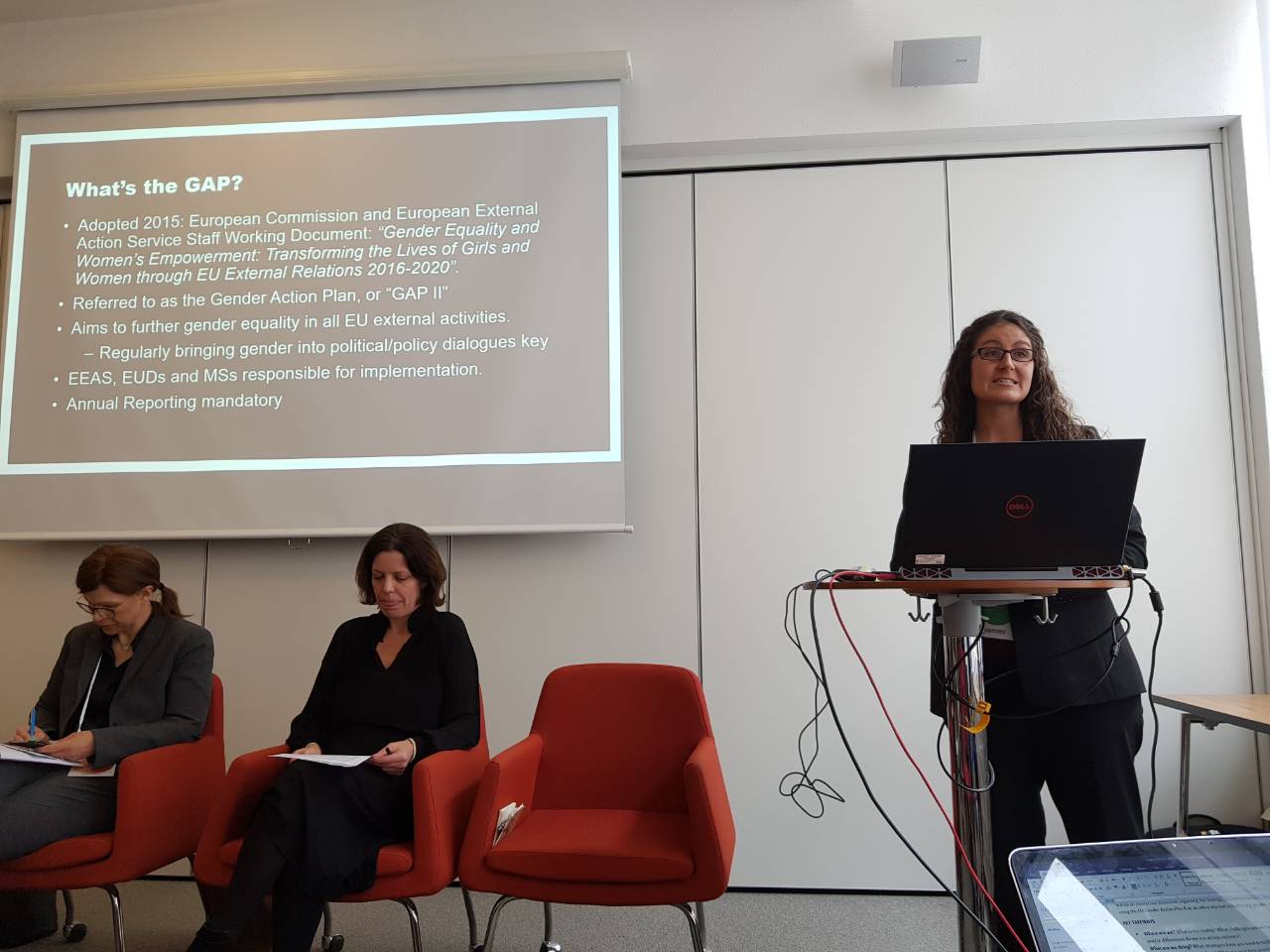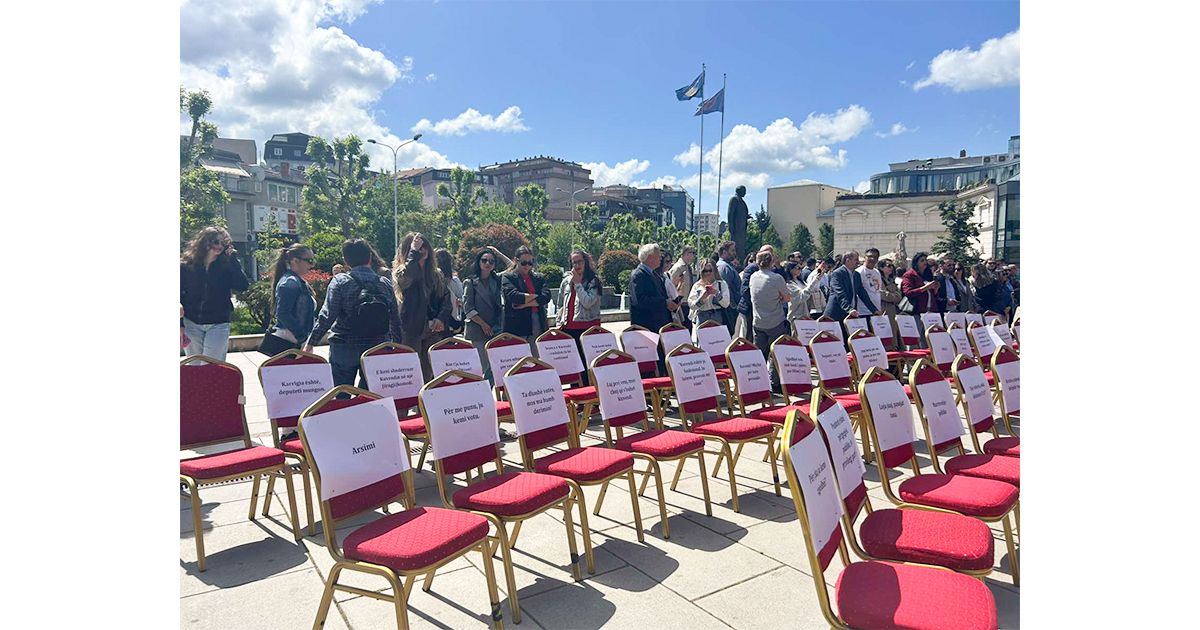On 15-17 April, the Stockholm Forum on Gender Equality gathered “change-makers” from more than 100 countries to identify strategies for “strengthening women’s and girls’ rights, representation and access to resources”. The Kosovo Women’s Network (KWN) Executive Director Igballe Rogova was invited to attend, and KWN’s Program Director and Lead Researcher Nicole Farnsworth was asked to present KWN’s latest research, Mind the GAP: Independent Evaluation of the Implementation of the EU Gender Action Plan in Western Balkan Countries at the Forum, in a panel discussion organized with the Kvinna till Kvinna (Woman to Woman) Foundation.
Following a brief presentation of Mind the GAP, panelists discussed: “How well is the EU really doing when it comes to implementing its Gender Action Plan?” There was an interactive discussion regarding findings, recommendations and how gender advocates can use the EU Gender Action Plan II as an advocacy tool towards furthering gender equality worldwide, drawing from lessons learned from Western Balkan countries.
Moderated by Brigitta Jaksa, the panel involved Ambassador Mara Marinaki, Principal Advisor on Gender and on UNSCR 1325/WPS, European External Action Service; Karolina Vrethem, Deputy-Director, Department for Conflict and Humanitarian Affairs, Ministry for Foreign Affairs, Sweden; Petra Tötterman Anforff, acting Secretary-General, Kvinna till Kvinna Foundation; and Nicole Farnsworth.
Participants later stated that they found the discussion “fruitful and informed”, and that it was very relevant for activists and other actors working in different contexts, countries and regions.
During the Forum, the Kvinna till Kvinna Foundation also initiated a Call to Action, presented by 60 women human rights defenders from around the world to global leaders, entitled “Countering the shrinking space for Women Human Rights Defenders – A Global Call to Action by the Bravest Women in the World”. It calls for improved attention to the Personal and Organizational Safety and Security of women human rights defenders, funding for women’s rights organizations and movements amid the financial shrinking space, and better recognition of the important work of women human rights defenders.
The Forum also provided an important space for KWN’s advocacy, networking and building alliances with other activists from around the world.
For further information about the Forum: @GenderEqlWorld #StockholmGenderForum #GenderEqualWorld www.genderequalworld.com.



